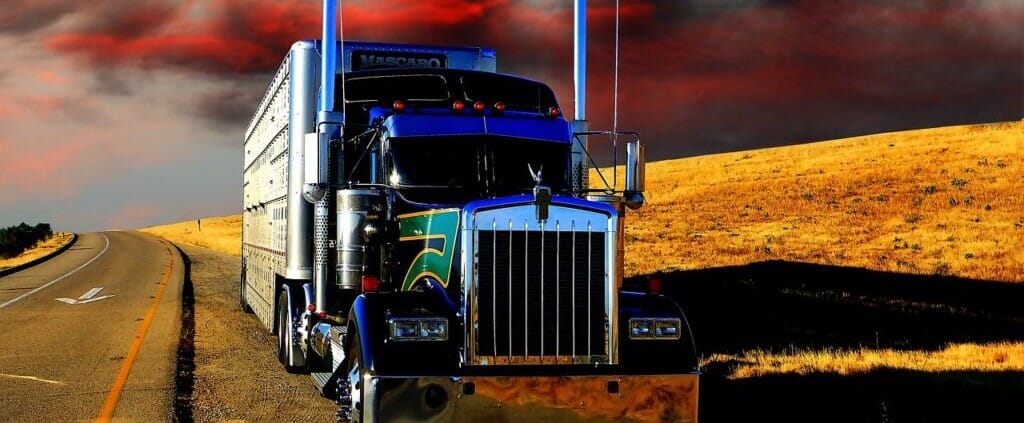8 Steps to Starting a Trucking Company
Creating a Trucking Company Prepared for Success
You’ve been driving for a long time, and it feels like time to start your own trucking company so you can be your own boss. Simple enough right? The truth is there’s a lot of planning that goes into building a business.
You want to make sure you do the proper planning too, so your company has a chance to succeed. Before you jump into your idea, check out 8 steps you need to follow to start a trucking company with potential for growth.
Create a Business Plan
Before you do anything else, you need to have a good idea of what you plan to do with your business. Creating a business plan will help you establish clear goals and determine potential obstacles to your new company.
This can be a something simple that outlines your trucking company, or it can be a detailed business plan, whichever you choose. Just make sure you track potential revenue and expenses. You also want to have a clear idea of who you want to work with.
Plan what type of cargo you will move and who your ideal customer is. You also want a good idea of your ideal vendors. Knowing the type of people you want to work with will help you create goals that allow your company to grow and thrive.
Establish Your Company
Once you have a plan for your business, it’s time to get your trucking company legally established. You can register as:
- Sole Proprietorship
- Partnership
- LLC
- Corporation
Registering as an LLC or Corporation means incorporating your business. This option separates your business and your personal assets. Doing so will protect personal assets from being involved in any business liabilities.
If you incorporate, you need to appoint a registered agent who will deal with legal and tax communications. You also need to obtain an employer identification number (EIN) so you can open a business banking account and file taxes.
Obtain Necessary Permits and Licenses
There are several permits and licenses you will need to maintain to run your business. For a trucking business, you need a USDOT number. This number identifies your company during inspections, audits, and investigations.
You also need an operating authority number to determine what type of cargo you can carry. Make sure all drivers associated with your company have their CDL and any required endorsements, and that they are registered with the FMCSA Drug and Alcohol Clearinghouse.
As you build your business, you will need to file a BOC-3 to designate process agents for each state you have an office or establish contracts. If you offer services across multiple states, you will need International Registration Plan (IRP) credentials and International Fuel Tax Agreement (IFTA) decals for all vehicles.
It’s important to keep up with all business and FMCSA filing requirements and deadlines. Keep records of all licenses and make sure you renew before they expire.
Set Up Financial Tracking Systems
One of the most important aspects of your trucking company is keeping up with the finances. It’s important to set up a system to track income and expenses from the beginning. You can either purchase bookkeeping software or outsource to an accountant.
Part of this is understanding when and how you’ll be paid for deliveries so you can plan cashflow accordingly. Some companies will use factoring, receiving payments from a third-party financial company to cover customer payments. This allows cashflow to remain steady when invoices will not be paid for 30-, 60-, or 90-day periods.
Make sure you keep thorough records for business expenses. Also, make sure you keep your business finances separate from your personal finances to protect both.
Get Your Equipment
Of course, you can’t run a trucking company without equipment. Determine what equipment you need based on the freight you plan to carry.
Do you plan to carry perishable items? You might need a refrigerated compartment. Will your drivers go across multiple states? You probably need a sleeper cabin.
Once you know what equipment you need, decide whether buying or leasing is best for your company. Both options have pro and cons, so do your research and weigh the options against your current financial situation.
Insure Your Business
When dealing with a fleet, no matter how small, you need to make sure you’re covered in case of an incident. There are four major types of insurance you will need for your company:
- General Liability Insurance
- Auto Liability Insurance
- Auto Physical Damage Insurance
- Motor Truck Cargo Insurance
You may need other options such as passenger insurance or non-trucking-use, depending on your company. Insurance will cover damages to your property, a victim’s property, and damage or loss of cargo.
Set Safety Management Strategies
It may not seem like a priority in the beginning but starting out with safety management strategies is essential for trucking companies today. Between rising insurance costs and increased nuclear verdicts in court, you need systems in place that prove proper training.
You have a couple options for safety training, but online training is the simplest road to go. New drivers can complete onboarding training from anywhere so you can get them on the road quicker. Regular training can be assigned and available without brining all your drivers in.
Online training also helps with record keeping. You have all training certificates in one place to pull when needed. This training documentation will help in case of an audit, inspection, or litigation issue occurs. It can also help you when it comes to insurance negotiations.
Find Loads
Before anything else, you need to do your research on current market freight rates. This will help you determine where to set your rates. Keep in mind you want to make sure you don’t set rates so low you can’t make a profit.
Once you have everything set up, it’s time to find loads for your drivers to carry. Look into load boards so you can find customers to get started. As you build your trucking company, you’ll want to start marketing and networking to find potential customers.
You can use social media and website ads to market to potential customers. You can also participate in industry tradeshows to build useful relationships. Make sure you pick areas that are relevant to your area of expertise.
Keep Moving Forward
As your trucking company grows, you’ll want to find ways to outsource administrative tasks as much as possible. This will make running the business less overwhelming.
Marketing, bookkeeping, setting appointments, even safety training are all areas where you can outsource tasks. Trucking 52 has your safety training needs under control. We provide highly recommended safety training that your drivers can access from anywhere.
Trucking 52’s training solutions can help reduce some of the stress of getting started with a new business. Request a free demo to learn how we can help you establish a trucking company ready for growth.











